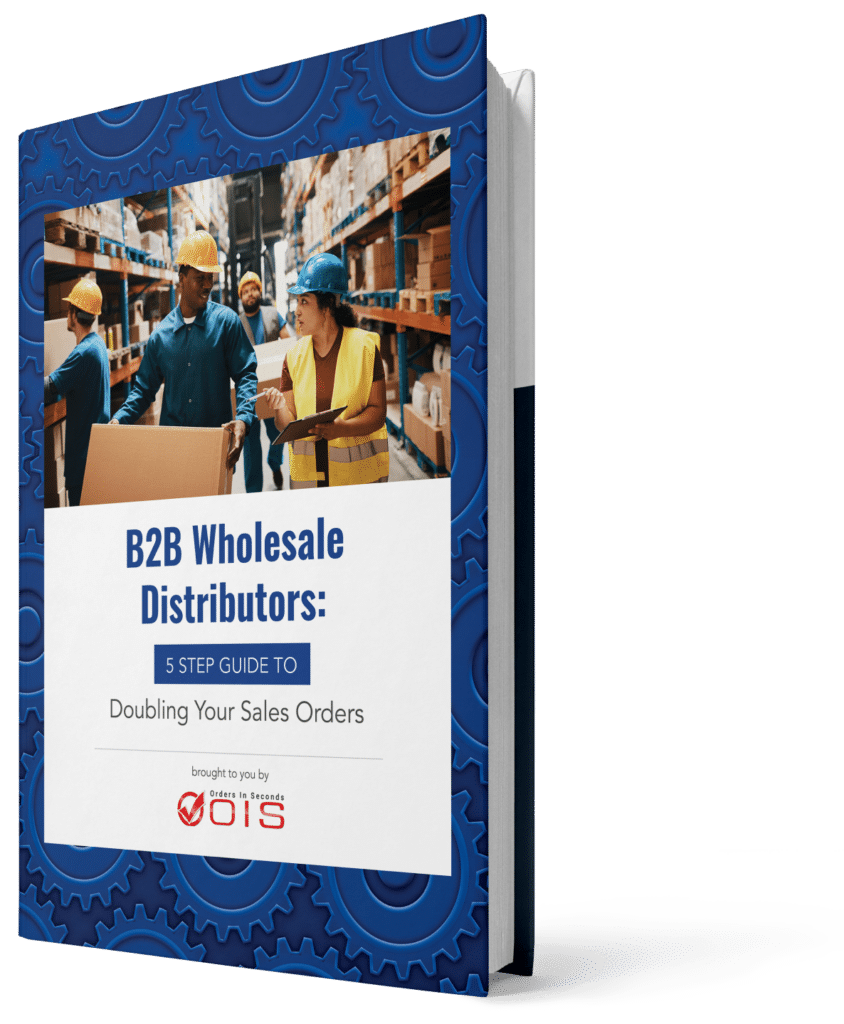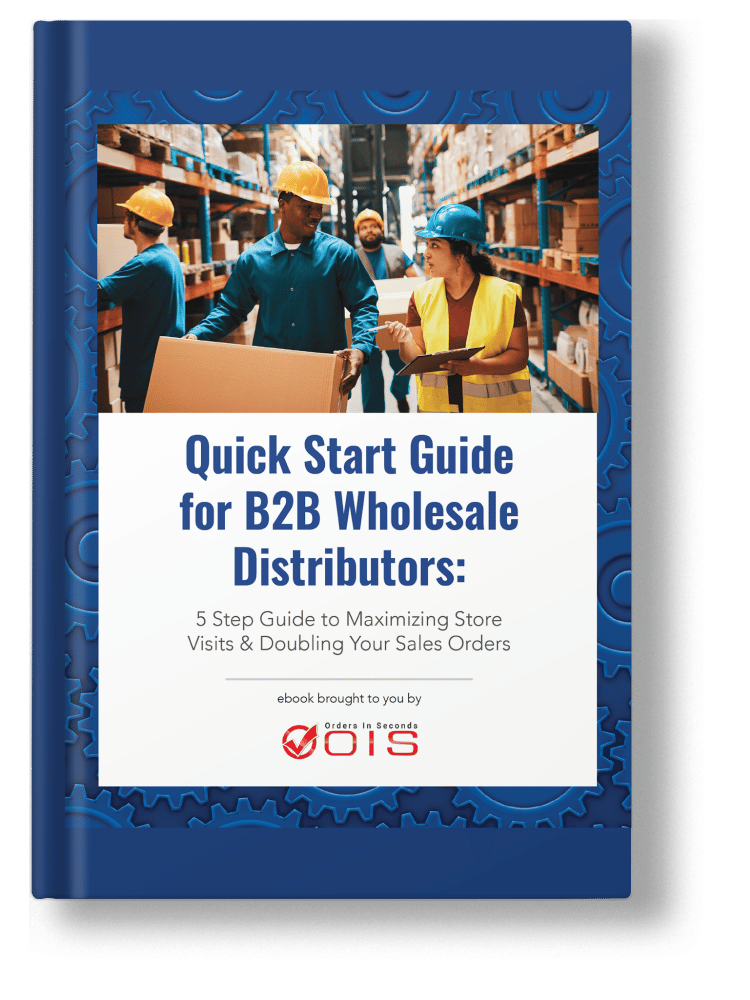The wholesale distribution industry is a powerhouse, with a global market value surpassing $7.7 trillion and projections indicating that 80% of B2B sales will occur online by 2025. If you’re researching how to become a distributor, this business model offers unparalleled opportunities for entrepreneurs eager to connect manufacturers with retailers. Distributors purchase products in bulk—often at a discount—and resell them to retailers, earning profits through high-volume sales. This in-depth guide provides a detailed roadmap with ten actionable steps to launch a thriving distribution business, optimized for SEO and growth, and enhanced with tools like those from Orders in Seconds. Whether you’re a beginner or scaling an existing operation, this guide will help you navigate the complexities of wholesale distribution.
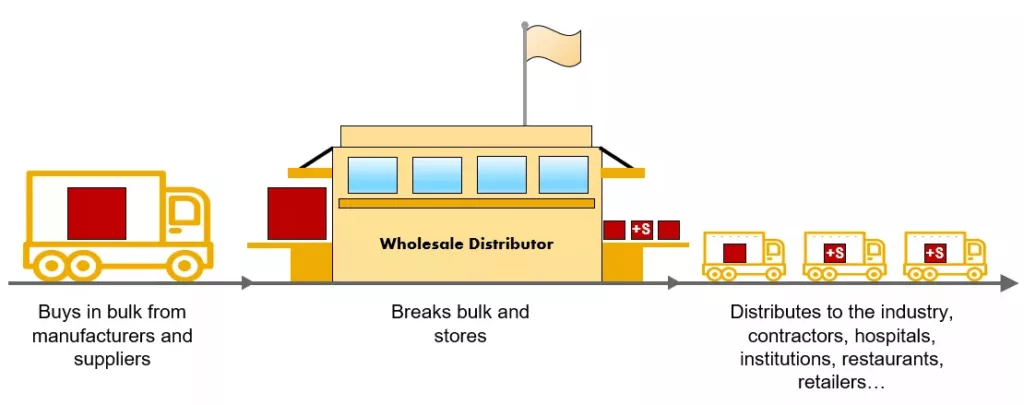
Understanding the Role of a Distributor
A distributor acts as a critical link in the supply chain, purchasing products from manufacturers or producing their own and selling them in bulk to retailers at a price below the recommended retail price (RRP). Unlike direct-to-consumer (DTC) businesses, distributors focus on B2B transactions, leveraging economies of scale to maximize profits. The rise of e-commerce platforms, automation tools like Orders in Seconds’ wholesale management software, and growing demand for B2B solutions make 2025 an ideal time to enter the industry.
Why Start a Distribution Business in 2025?
Massive Market Potential: The wholesale industry is outpacing DTC, with higher revenue opportunities (Forbes on B2B e-commerce trends).
Lower Customer Acquisition Costs: Targeting retailers instead of individual consumers reduces marketing expenses.
Scalability and Flexibility: High-volume sales and tiered pricing models enable rapid growth.
Technological Advancements: Tools like Orders in Seconds’ inventory management streamline operations, making it easier to manage large-scale orders.
Ready to master how to become a distributor? Follow these ten comprehensive steps to build a successful wholesale business.
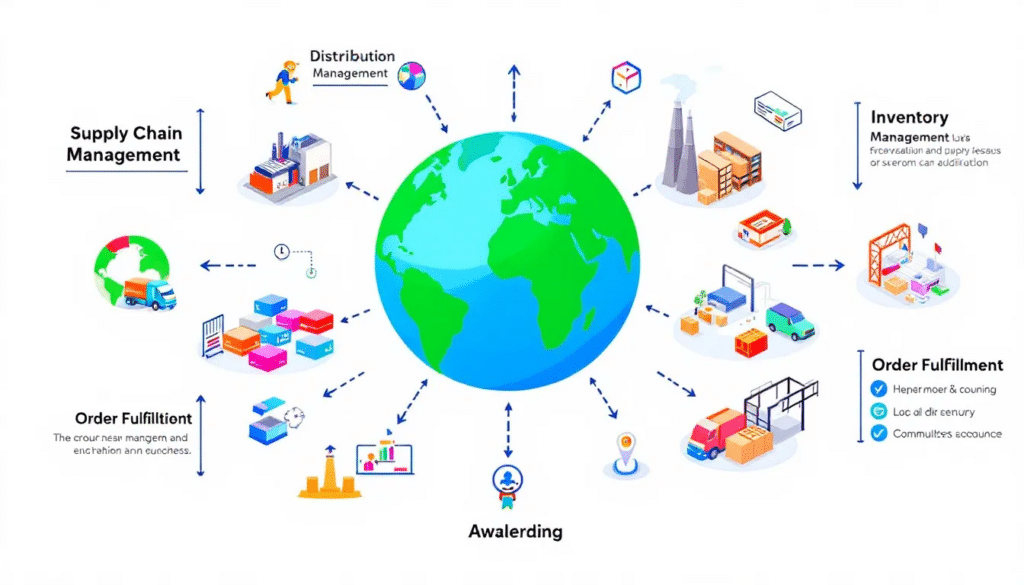
Step 1: Conduct In-Depth Market Research
Market research is the foundation of your distribution business. To succeed in how to become a distributor, you need a clear understanding of market demand, target audiences, and competitive landscapes. Key questions to address include:
What products are trending (e.g., sustainable goods, electronics, or health products)?
Who are your target retailers—large chains, boutique stores, or e-commerce platforms?
What are the competitive pricing structures and profit margins in your niche?
Use tools like Google Trends to identify high-demand products and Orders in Seconds’ analytics tools to track sales trends. For example, in 2025, eco-friendly products and food distribution are booming, with companies like Sysco leading the food sector. Industry reports from sources like IBISWorld can provide deeper insights into market size and growth projections.
Pro Tip: Analyze Competitors
Study competitors like Magnolia Fashion Wholesale or Ashland Conveyor to understand their product offerings, pricing, and customer service strategies. This helps you identify gaps in the market and position your business effectively.
Step 2: Select High-Potential Products
Choosing the right products is critical to your success as a distributor. Focus on products that align with market demand and offer strong profit margins. Consider:
High-Demand Categories: Fashion, beauty, electronics, and health supplements are top performers in 2025.
Profit Margins: Aim for 30–60% margins after accounting for shipping, taxes, and storage costs.
Scalability: Select products that can be sold in bulk without excessive warehousing expenses.
Niche Appeal: Unique or trending products, like sustainable packaging or vegan beauty items, can set you apart.
For example, partnering with suppliers like Magnolia Fashion Wholesale, which offers no minimum order quantities, is ideal for new distributors. Use Orders in Seconds’ inventory management to monitor stock levels and optimize product selection based on sales data.
Research Resources
Explore platforms like Jungle Scout for product research or attend industry webinars to stay updated on trends.
Step 3: Source Reliable Suppliers
Your distribution business relies on trustworthy suppliers. To excel in how to become a distributor, prioritize manufacturers with:
Strong Reputation: Verify their track record through reviews, years in business, and client testimonials.
Competitive Pricing: Ensure their pricing and minimum order quantities (MOQs) align with your cash flow.
Reliable Delivery: Confirm they can meet your volume and timeline requirements consistently.
Quality Assurance: Request product samples and verify certifications, especially for regulated industries like food or cosmetics.
Connect with suppliers through platforms like Alibaba or ThomasNet. Attend trade shows listed on Trade Show News Network to build relationships in person. Tools like Orders in Seconds’ supplier integration can automate order processing and improve supply chain efficiency.
Risk Mitigation
Always request references and verify product liability insurance to protect against defective products or supply chain disruptions.
Step 4: Obtain Licenses and Permits
Operating legally is non-negotiable. Requirements vary by region and industry but typically include:
A general business license
A wholesale license or reseller’s permit
Tax identification numbers (e.g., EIN in the U.S.)
Industry-specific certifications (e.g., food safety for edible products)
Research regulations through the U.S. Small Business Administration (SBA) or equivalent authorities in your country. Certified wholesalers can only sell to licensed businesses, so compliance is critical for credibility and partnerships. Orders in Seconds offers tools to organize and track compliance documents, ensuring you’re audit-ready.
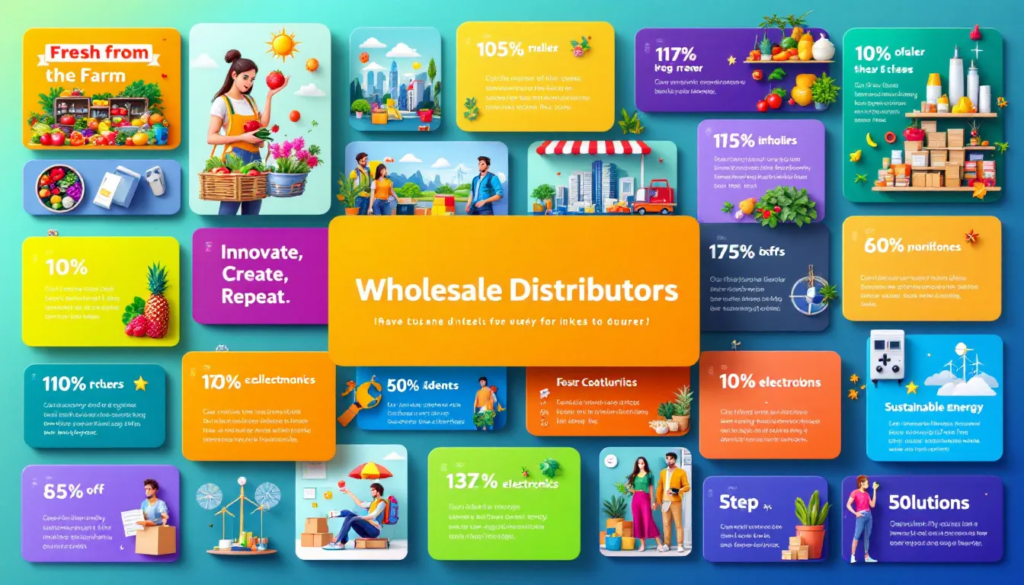
Step 5: Develop a Competitive Pricing Strategy
Pricing determines your profitability and competitiveness. To succeed in how to become a distributor, follow these guidelines:
Calculate All Costs: Include taxes, shipping, storage, and production fees to avoid losses.
Implement Tiered Pricing: Offer discounts for larger orders (e.g., $18.44/unit for 1,000 units vs. $21.04 for five).
Set Minimum Order Quantities (MOQs): Encourage bulk purchases to maximize margins.
Establish Manufacturer’s Suggested Retail Price (MSRP): Include MSRP in contracts to prevent retailers from undercutting prices, maintaining market stability.
For example, if you’re distributing electronics, tiered pricing can incentivize retailers to buy in bulk. Use Orders in Seconds’ pricing tools to automate pricing adjustments and monitor profitability. Learn more about pricing strategies from Harvard Business Review.
Step 6: Build a Professional Online Wholesale Store
With 80% of B2B sales moving online, a robust e-commerce platform is essential. Platforms like Shopify, integrated with Orders in Seconds’ B2B solutions, offer features like:
Password-protected wholesale portals
Customized pricing and product visibility for retailers
Self-serve ordering with secure payment terms (e.g., Net 30 or Net 60)
SEO Optimization for Your Store
Keyword Strategy: Incorporate terms like “wholesale [product name],” “bulk [product category],” and “how to become a distributor” in product descriptions, meta tags, and URLs.
High-Quality Visuals: Use clean product images on white backgrounds, as seen on Rockwell Razors’ wholesale page.
Inquiry Forms: Add a wholesale inquiry form in your website footer for retailer applications.
Mobile Optimization: Ensure your store is mobile-friendly, as many B2B buyers browse on mobile devices.
Explore BigCommerce’s B2B e-commerce guide for additional tips on building a wholesale store.
Step 7: Create a Targeted B2B Marketing Plan
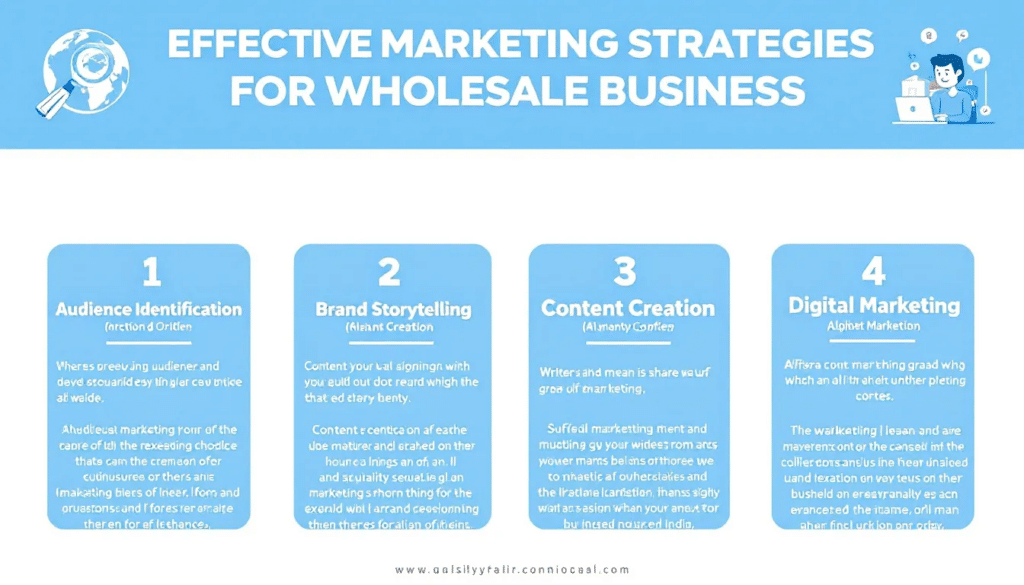
Attracting retailers requires a strategic marketing approach. Key tactics include:
SEO Optimization: Use high-intent keywords like “how to become a distributor,” “wholesale suppliers [industry],” and “bulk products” in blog posts, product pages, and meta descriptions.
Wholesale Marketplaces: List products on platforms like Faire or Tundra to reach a wider audience.
Trade Shows and Networking: Attend events listed on Trade Show News Network to build relationships and secure contracts.
Content Marketing: Publish blogs on industry trends, product guides, or distributor success stories to drive organic traffic.
Promotional Materials: Provide retailers with branded signage, social media templates, or in-box promos, as Brooklinen does for its wholesale partners.
Leverage Orders in Seconds’ marketing integrations to automate email campaigns and track performance. For inspiration, check Entrepreneur’s guide to B2B marketing.
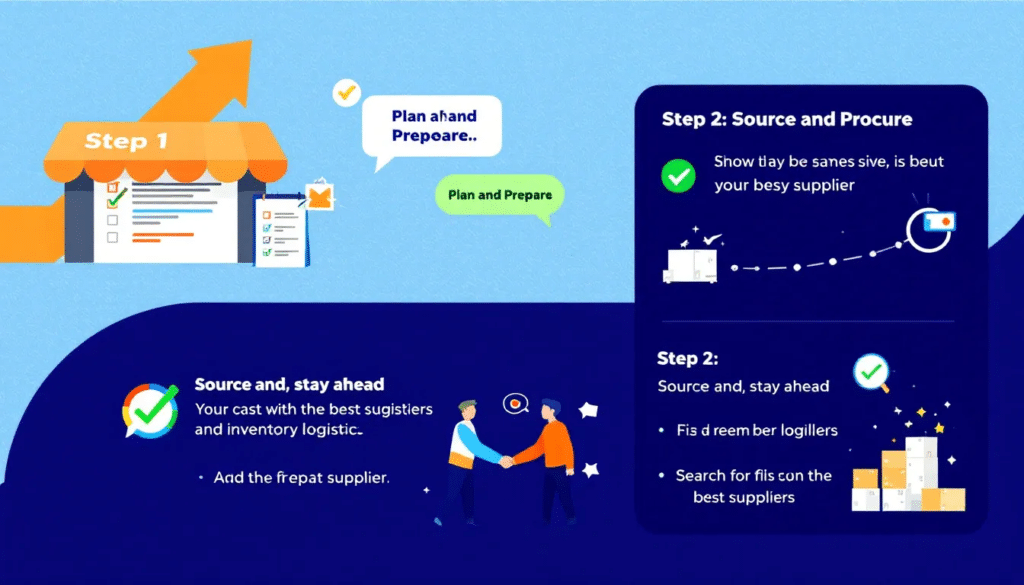
Step 8: Deliver Exceptional Customer Service
Retailers expect a seamless, DTC-like experience. To differentiate your business:
Provide real-time order updates and transparent shipping timelines.
Offer flexible payment terms like Net 30 or Net 60 to accommodate retailer cash flow.
Use automation tools like Orders in Seconds’ B2B order management to streamline processes and reduce errors.
Strong customer service fosters repeat business and referrals. Learn best practices from Harvard Business Review’s B2B customer service guide.
Step 9: Leverage Technology for Efficiency
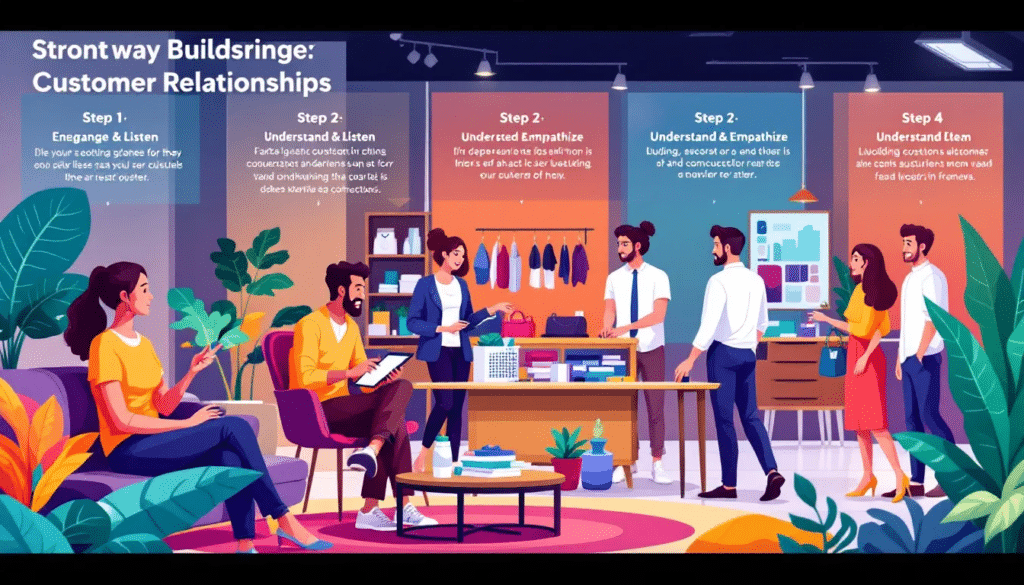
Technology is a game-changer for distributors. Tools like Orders in Seconds offer:
Inventory Management: Real-time tracking to prevent stockouts or overstocking.
Order Automation: Streamline order processing and reduce manual errors.
Analytics Dashboards: Monitor sales, margins, and customer behavior to optimize operations.
Integrate with accounting software like QuickBooks or CRM platforms like HubSpot for a cohesive workflow. Automation saves time and positions your business for scalability.
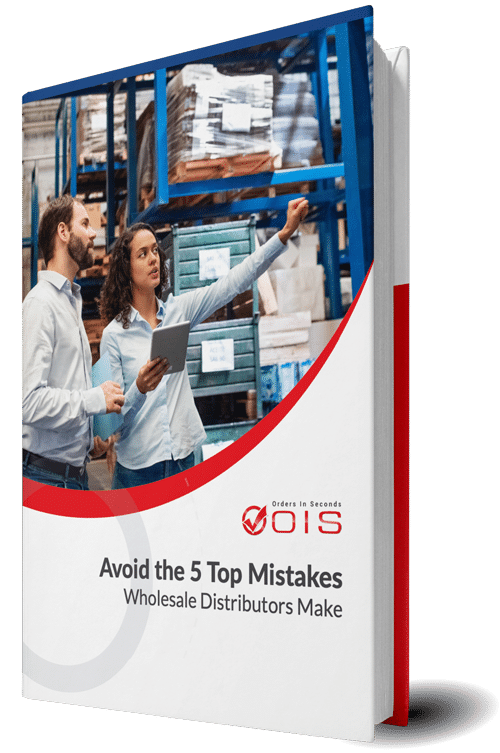
Avoid the Top 5 Mistakes Wholesale Distributors Make
Are you making one of the top 5 mistakes that plague wholesale distributors? Download our free eBook to find out. We’ve also included tips and guidance to help you save time and avoid costly mistakes.
Step 10: Scale and Diversify Your Business
Once your distribution business is established, focus on growth:
Expand Product Lines: Add complementary products to attract new retailers.
Enter New Markets: Target international retailers or new industries using platforms like Alibaba.
Build Strategic Partnerships: Collaborate with manufacturers or logistics providers to reduce costs.
Invest in Branding: Create a recognizable brand to stand out in competitive markets.
Use Orders in Seconds’ analytics to identify high-performing products and markets for expansion. Read Forbes’ guide to scaling a business for additional strategies.
Advanced SEO Tips to Dominate Search Rankings
To ensure your distribution business is discoverable, implement these SEO strategies:
Long-Tail Keywords: Target phrases like “how to become a Distributor in [industry],” “wholesale suppliers near me,” and “bulk [product category] for retailers.”
Content Marketing: Publish in-depth guides, case studies, and industry trend reports to attract organic traffic.
Backlink Building: Partner with industry blogs, trade publications, or platforms like Entrepreneur for authoritative backlinks.
Local SEO: Optimize for “wholesale distributors [city]” with Google My Business listings.
Technical SEO: Improve site speed, ensure mobile-friendliness, and use schema markup for B2B products.
Learn advanced SEO techniques from Moz’s Beginner’s Guide to SEO.
Common Challenges and How to Overcome Them
Cash Flow Management: Use Orders in Seconds’ financial tools to track expenses and forecast cash flow.
Supplier Reliability: Build relationships with multiple suppliers to mitigate risks.
Competition: Differentiate with superior customer service and niche product offerings.
Regulatory Compliance: Stay updated on regulations via the SBA to avoid penalties.
Conclusion: Launch Your Distribution Empire Today
Mastering how to become a distributor in 2025 unlocks access to a $7.7 trillion market. By conducting thorough research, selecting high-demand products, securing reliable suppliers, obtaining licenses, setting competitive prices, building an online store, marketing strategically, delivering exceptional service, leveraging technology, and scaling thoughtfully, you can create a profitable wholesale business. Platforms like Orders in Seconds simplify operations with tools for inventory, order management, and analytics, empowering you to focus on growth.
Take the first step today: research your niche, connect with suppliers, and build your distribution empire with confidence!
How to Become a Wholesale Distributor in 2025: FAQs Answered
1. What Are the Steps to Become a Wholesale Distributor?
To start your journey as a wholesale distributor, follow these comprehensive steps to build a scalable and profitable business:
Identify Your Target Market: Define your ideal customers, such as boutique retailers, e-commerce stores, or large chains. Use Orders in Seconds’ analytics tools to analyze market demand and customer preferences.
Select High-Demand Products: Choose products with strong resale potential, like fashion, electronics, or eco-friendly goods. Research trends using Google Trends and ensure 30–60% profit margins.
Obtain a Wholesale License: Secure necessary permits, including a business license, reseller’s permit, and tax ID. Check requirements via the U.S. Small Business Administration (SBA) or local authorities.
Source Reliable Suppliers: Partner with reputable manufacturers offering competitive pricing and reliable delivery. Platforms like Alibaba and Orders in Seconds’ supplier integration streamline sourcing.
Set Competitive Pricing: Calculate costs (e.g., shipping, taxes) and implement tiered pricing to encourage bulk purchases. Use Orders in Seconds’ pricing tools for automation.
Establish Minimum Order Quantities (MOQs): Set MOQs to ensure profitability while aligning with retailer budgets.
Create High-Quality Product Visuals: Upload professional product images optimized for B2B buyers, like those on Rockwell Razors’ wholesale page.
Develop Promotional Materials: Provide retailers with branded signage, social media templates, or in-box promos to ensure consistent branding.
Build an Online Wholesale Store: Create a B2B e-commerce platform with features like password-protected access and Net 30 payment terms using Orders in Seconds’ B2B solutions.
Market Your Business: Use SEO, wholesale marketplaces like Faire, and trade shows listed on Trade Show News Network to attract retailers.
These steps, supported by automation tools, position you for success in the competitive wholesale market. Learn more about B2B strategies from BigCommerce’s guide.
2. How Do Wholesale Distributors Make Money?
Wholesale distributors earn profits by purchasing products in bulk from manufacturers at a low cost and selling them to retailers at a higher price, but below the recommended retail price (RRP). The profit margin per unit is typically small (e.g., 30–60%), but high-volume sales generate significant revenue. For example:
A distributor buys 1,000 units at $10 each and sells them at $15, earning $5,000 in profit.
Tiered pricing, like offering discounts for larger orders, boosts profitability (e.g., $14/unit for 500 units vs. $13/unit for 1,000).
Tools like Orders in Seconds’ inventory management help track sales and margins, ensuring profitability. Read about pricing strategies in Harvard Business Review.
3. Is Being a Wholesale Distributor Profitable?
Yes, wholesale distribution is highly profitable due to its high-volume, low-margin model. Unlike DTC businesses, which rely on individual consumer sales, distributors sell in bulk to retailers, reducing marketing costs and increasing revenue through scale. Key factors driving profitability include:
Economies of Scale: Selling large quantities amplifies profits despite lower per-unit margins.
Lower Marketing Costs: Targeting B2B clients requires less advertising spend than DTC.
Recurring Revenue: Building long-term relationships with retailers ensures repeat orders.
For instance, distributors in high-demand sectors like beauty or food can achieve margins of 40–60% with proper pricing and cost management. Automation tools like Orders in Seconds’ order management reduce operational costs, further boosting profitability. Explore profitability insights from Forbes.
4. What Are the Biggest Challenges for New Wholesale Distributors?
New distributors may face challenges like:
Cash Flow Management: High upfront costs for inventory can strain finances. Use Orders in Seconds’ financial tools to forecast and manage cash flow.
Supplier Reliability: Partner with multiple suppliers via Alibaba to mitigate risks of delays or quality issues.
Competition: Differentiate with niche products, superior service, or exclusive partnerships.
Regulatory Compliance: Stay compliant with local laws using resources like the SBA.
5. How Can Technology Help Me Succeed as a Distributor?
Technology streamlines operations and enhances competitiveness. Key tools include:
Inventory Management: Track stock levels in real time with Orders in Seconds.
Order Automation: Reduce manual errors with Orders in Seconds’ B2B order management.
Analytics: Monitor sales and customer behavior to optimize offerings.
CRM Integration: Use platforms like HubSpot to manage retailer relationships.
Automation saves time and enables scalability, allowing you to focus on growth. Learn about technology in wholesale from Entrepreneur.
6. How Do I Attract Retailers to My Wholesale Business?
Attracting retailers requires a targeted B2B strategy:
Optimize for SEO: Use keywords like “how to become a wholesale distributor,” “bulk [product category],” and “wholesale suppliers [industry]” in your website content.
List on Marketplaces: Reach retailers through Faire or Tundra.
Attend Trade Shows: Network at events listed on Trade Show News Network.
Offer Promotions: Provide introductory discounts or flexible payment terms via Orders in Seconds’ pricing tools.
Creating a professional online store with Orders in Seconds’ B2B e-commerce solutions also builds trust with retailers.
Ready to Start you Distribution Business with Orders in Seconds?
Launch your wholesale business faster with OIS Pro. Automate your warehouse operations, and manage inventory seamlessly. Don’t get bogged down in logistics.
Start selling NOW! Click here to streamline your launch today!







